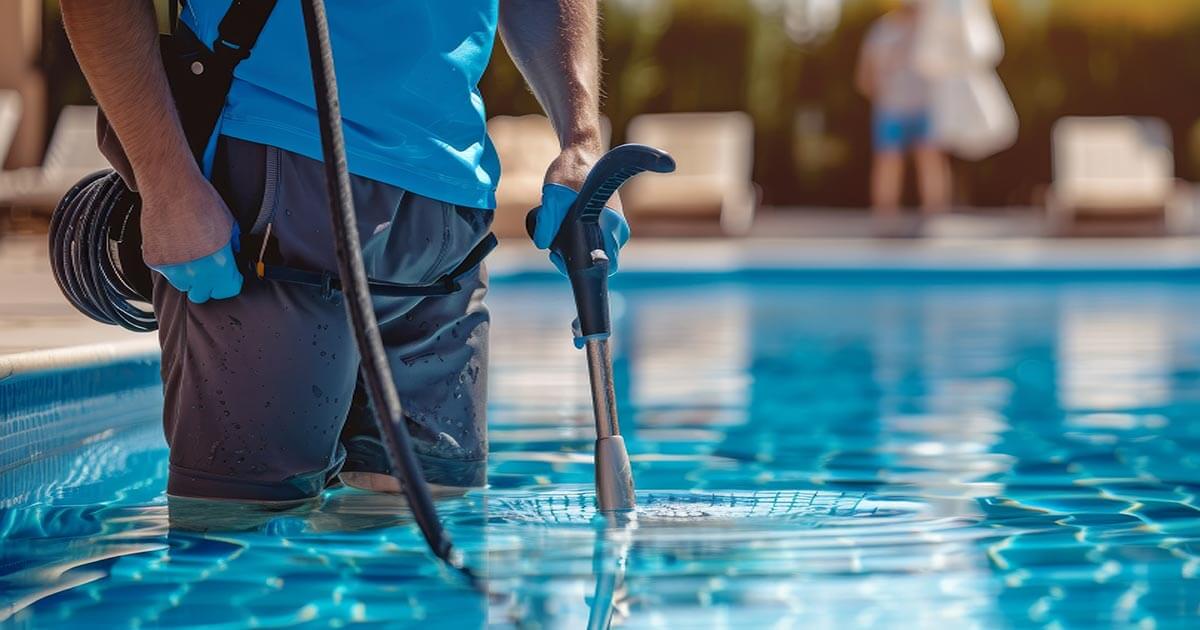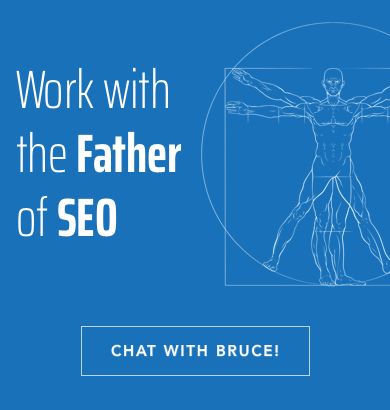How SEO Helps Pool Installation and Maintenance Companies Attract More Clients

SEO isn’t just about rankings—it’s about trust and steady leads. Clear service pages, helpful articles, and strong reviews help you show up in Google, Maps, and even voice searches. The result? More qualified calls, more form fills, and fewer missed opportunities to competitors.
With a solid SEO plan, your pool company can attract high-intent customers at every stage—from “thinking about a pool” to “ready to book a service”—and turn those searches into long-term clients.
Why SEO Matters for Pool Installation and Maintenance
Pools are a big purchase—and buyers care about more than just the price. They want expert guidance, clear next steps, and a smooth online experience. Because the pool market is seasonal and competitive, showing up at the top of local search results matters most when people are planning, budgeting, or suddenly need maintenance. If you’re not there, those early touches go to someone else.
SEO helps you show up for both installation and ongoing service searches. The essentials of pool installation SEO include:
- Clear service pages and city-specific content that answer real questions
- Mobile-friendly design so calls and forms work perfectly on phones
- Smart keyword targeting (e.g., “pool builders near me,” “pool cleaning [City]”)
- Quality backlinks and technical tune-ups to build authority and speed
- User experience improvements that turn clicks into calls
Pool companies that invest in SEO consistently win more local visibility, build trust, and keep the calendar full—during peak season and the slower months.
What I Think
Picture this: A parent searches for a pool pro after dinner. They skim the results, read a few reviews, and choose the contractor who looks ready to help right now.
That spot can be yours.
SEO gets you there—for new builds, cleanings, repairs, and everything in between. Keep your pages clear. Answer the questions people actually ask. Make it easy to call from a phone.
Do those things consistently and you won’t just be found—you’ll be chosen. Whether you build pools or maintain them, SEO is your bridge to more traffic, more inquiries, and better clients. I’ve seen businesses unlock year-round stability in what used to be a seasonal niche. In short, SEO works—and it works best when done consistently and locally.
Primary SEO Tasks
Think of primary SEO as the must-do basics: know what people search, make each page clear and helpful, show up in local results, and keep adding helpful articles and FAQs. Do this consistently and you’ll earn more qualified visits—and more calls.
Keyword Research
Start with how people actually talk. A neighbor might type “backyard pool installation.” A busy parent searches “weekly pool maintenance.” Someone on the fence googles “saltwater pool vs. chlorine.” Address these topics, then add your town and nearby suburbs so you show up locally.
Peek at what competitors rank for and fill in the holes they missed. Sort your list by readiness:
- Ready now → service pages (quotes, pricing, “book today”)
- Comparing → quick explainers and side-by-side pages
- Just curious → short how-tos and FAQs
Use those terms to shape everything: your service pages, blog topics, FAQs, even your Google Business Profile posts. Over time you’ll cover the searches that actually lead to calls—new builds, cleanings, repairs—and stop guessing at what to write.
That’s keyword research—listening to what people in your area are already asking and answering it clearly.
On-Page Optimization
Each service page should be optimized with a target keyword, compelling meta title, and a meta description that encourages clicks. Use H1 and H2 tags to outline your services clearly and naturally incorporate search terms. Include internal links to related services like pool covers, repairs, or cleaning programs. Use alt text on images showing installations or before-and-after transformations. Make your contact info and quote request buttons visible across every page. Optimize for readability with short paragraphs and subheadings. On-page SEO ensures relevance, structure, and conversion alignment.
Local SEO
Pool services are local by nature, making local SEO a top priority for pool installation and maintenance businesses. Claim and optimize your Google Business Profile with detailed services, images, and operating hours. Get listed in top directories like Yelp, Houzz, and BBB. Use city-specific landing pages and embed maps for each location served. Encourage customer reviews that mention service areas by name. Post regularly in your Google Business listing to increase local engagement. Use local schema to further boost visibility in map results. Local SEO connects you with homeowners in your neighborhood, fast.
Content Development
People Google questions. Answer them by writing posts like:
- “Before You Install an Inground Pool”
- “Pool Cleaning: How Often and How Much?”
- “Pool Trends for [Year]”
Use pictures, simple diagrams, and quick clips. Be their guide by exploring different costs, timelines, and pros/cons. Mix in seasonal tips and side-by-side comparisons.
Refresh content annually to match search trends. Create seasonal landing pages two months ahead of each peak service time to dominate early search traffic and build momentum. Strong content creates long-term search authority.
Technical SEO
Speed matters. It helps rankings and it keeps people on the page. You should aim to:
- Compress big images. Use WebP if you can.
- Cut extra plugins and heavy scripts.
- Minify CSS/JS and turn on caching.
- Make your site work on a phone: readable text, tap-friendly buttons.
- Fix broken links.
- Send a fresh XML sitemap in Search Console.
- Use HTTPS everywhere.
- Keep URLs short and clear: /pool-cleaning-dallas.
- Add basic schema (LocalBusiness, Service, FAQ) for richer results.
Get these basics right and everything else in SEO works better.
Backlink Strategy
Here are some effective ways to enhance your backlink strategy:
- Write helpful posts for home and real estate sites.
- Get listed on legit local and industry directories.
- Publish case studies and printable guides people want to share.
- Ask suppliers/partners to link to your work.
- Skip spammy links. Review your backlinks and remove bad ones.
Real, relevant links move the needle. Everything else is noise.
Review Management
Effectively manage your reviews by:
- Sending a quick text or email after each job with your Google review link
- Replying to every review within a day
- Featuring your best reviews on the site
- Using feedback to improve.
Here’s an example of what to send:
“Thanks for choosing us today! If we earned it, would you leave a quick, honest review? It really helps local families find us: [link]”
Short, real, and consistent—that’s what turns reviews into trust and clicks.
Competitor Analysis
Study competitors who outrank you in local searches to uncover what they’re doing right. Analyze their keywords, content length, link profiles, and user experience. Use these insights to improve your site structure, service coverage, or backlink strategy. Identify service gaps they don’t offer and capitalize on those keywords. Track their review activity and social media integration. Map out their strengths and weaknesses in monthly audits. Competitor research sharpens your competitive edge.
Analytics and Reporting
Use Google Analytics and Search Console to monitor traffic, bounce rates, and keyword rankings. Set goals for contact form completions, quote requests, or appointment bookings. Track which pages generate the most leads and optimize accordingly. Measure the impact of blog content on organic traffic over time. Create dashboards for visual reporting. Use data to refine strategies and guide SEO priorities. Clear analytics ensure every action is performance-backed.
Secondary SEO Actions
The next steps are simple: Add schema where it helps, link from high-traffic pages to priority services, and double-check mobile speed and layout. These secondary moves support everything else you’ve built.
Schema Markup
Add LocalBusiness and Service schema to your website for enhanced visibility in search results. Use FAQ schema for common pool questions. Include review schema to show star ratings. Improve voice search compatibility. Rich results attract more clicks.
Internal Linking
Connect blog posts to service pages to distribute page authority. Use descriptive anchor text like “custom pool shapes” or “pool cleaning plans.” Help users discover additional services. Create hub pages that guide readers through your full offering. Internal links boost time on site and reduce bounce rates; they also help search engines crawl your site more efficiently.
Mobile Optimization
Ensure buttons, menus, and forms are easy to use on mobile. Minimize popups and use responsive layouts. Optimize for tap targets and fast load times. Use mobile-friendly booking tools. Test your site on multiple devices. Mobile performance is now a ranking factor.
Lead Magnet Optimization
Offer pool design guides, maintenance calendars, or seasonal prep checklists as downloadable resources. Gate content behind short forms to collect emails. Promote lead magnets across blog posts and social channels. Follow up with nurture sequences or special offers. Segment email lists by interests. Lead magnets grow your audience and authority.
Image Optimization
Use high-resolution images of recent installs, maintenance visits, or before-and-after cleanings. Compress files for speed. Add relevant alt text with local keywords. Use descriptive filenames for better indexing. Add an image sitemap. Visual search and UX both benefit from these steps.
Google Business Profile Posts
Use GBP posts to highlight promotions, share blog links, or announce new services. Include relevant images and service area mentions. Use calls to action like “Request a Quote” or “Book Now.” Posts appear in search and maps listings. Refresh your posts weekly to stay visible. GBP engagement supports local rankings.
Video Content
Create videos showing project walkthroughs, seasonal tips, or team introductions. Upload them to YouTube and embed them on landing pages. Use keyword-rich titles and descriptions. Include subtitles and chapters for SEO. Share this content on Facebook and Instagram. Video content increases dwell time and brand recall.
Directory Listings
List your pool business on Houzz, Yelp, Angi, BBB, and regional contractor directories. Ensure NAP info is consistent. Add high-quality images and service descriptions. Monitor reviews and listing performance. Submit updates seasonally. Strong directory signals support local SEO.
Trust Signals
Display licenses, insurance verification, and manufacturer affiliations. Use customer testimonials with full names and photos. Highlight years of experience and local presence. Promote warranties and satisfaction guarantees. Use association badges on your footer. Trust signals increase conversion confidence.
Common Topics for Pool Installation and Maintenance
Homeowners search the same few topics over and over: how to install an inground pool, who can clean it each week, and what to do when equipment breaks. Use the sections below to cover those questions in clear, local language so people know what you do, what it costs, and how to get started.
SEO for Inground Pool Installation
Target high-conversion keywords like “custom inground pool builder” and “luxury pool installation [City].” Include galleries of past builds, testimonials, and financing info. Add content on planning timelines and permitting processes. Use structured data to improve listing appearance. Create landing pages for different pool styles. Educate homeowners about options. Optimize your site for desktop and mobile.
SEO for Pool Cleaning Services
Focus on queries like “weekly pool cleaning near me” or “saltwater pool cleaning.” Showcase service plans, pricing, and safety procedures. Highlight eco-friendly cleaning options. Add testimonials about responsiveness and reliability. Use internal links to related repairs or maintenance services. Include booking CTAs. Keep content focused and benefit-driven.
SEO for Pool Equipment Repair
Optimize pages for searches like “pool pump repair” or “heater won’t turn on.” Break down symptoms and repair processes. Add brand-specific guides. Offer emergency availability for sudden failures. Include diagnostic checklists. Link to install and upgrade options. Use schema to mark your listing as a service.
SEO for Saltwater Pool Conversion
Explain the benefits of converting to saltwater, like reduced chemicals and maintenance. Target keywords like “switch to saltwater pool” or “salt pool pros and cons.” Include pricing guides and FAQs. Share real client experiences. Link to cleaning and balancing services. Saltwater pages attract modern pool owners.
SEO for Pool Opening and Closing
Target seasonal traffic with “pool winterization” and “open pool for summer” pages. Include service timelines, supply checklists, and pricing. Use blog posts to explain DIY vs. pro help. Add photos of work in progress. Include CTAs for scheduling. Promote early bookings.
SEO for Pool Renovation Services
Rank for “resurface pool,” “change pool shape,” or “add waterfall feature.” Show before-and-after galleries. Detail renovation timelines and cost factors. Add content about material choices. Link to design consultations. Promote financing. Renovation SEO supports upsells.
SEO for Pool Safety Inspections
Offer checklists and packages for fence compliance, electrical safety, and childproofing. Target terms like “pool safety inspection” and “pool barrier code [City].” Include certifications and liability benefits. Use CTAs for HOA or real estate inspections. Safety content builds trust.
SEO for Pool Leak Detection
Target “find pool leak” and “water loss in pool” keywords. Describe symptoms, detection methods, and repair options. Use video or diagrams to explain pressure tests. Include emergency contact options. Showcase fast resolution and minimal disruption. Internal link to equipment services. Leak content converts urgent leads.
SEO for Pool Lighting and Automation
Promote smart lighting, remote monitoring, and app-controlled systems. Use terms like “automated pool lighting” or “smart pool controller install.” Include demo videos and lifestyle imagery. Break down integration with mobile devices. Link to energy efficiency or smart home upgrades. Appeal to premium clients.
Conclusion
Pool installation and maintenance companies that invest in SEO consistently rank higher, earn more qualified leads, and build long-term client relationships. With smart content, technical excellence, and local targeting, your business can become the top pool expert in your area.
Contact us now to transform your visibility, fill your calendar, and grow your reputation with proven SEO solutions for pool services.
FAQ: How does SEO aid pool installation and maintenance companies in increasing visibility and attracting new clients?
SEO helps people find your business in a space that’s full of competition. SEO for pool installation and maintenance companies helps ensure people can easily locate you when searching online. By optimizing your website, you increase chances of attracting clients searching “pool installation near me.”
One great advantage of SEO is drawing customers directly to your site without spending on advertisements. Imagine someone searching for “pool maintenance experts,” and your business appears as the first result in their search. An optimized website puts users’ experience first, with quick loading speeds, great content that answers their questions quickly, and low bounce rates.
SEO allows your business to connect with its target demographic. By targeting customers who truly require assistance, SEO makes marketing more cost-efficient (and budget-friendly).
SEO for pool companies primarily revolves around being easily located by nearby clients in listings and maps, something which is increasingly important given that most clients prefer having someone nearby.
Integrating SEO, social media, and quality content can really get the word out there. For example, sharing an informative article may lead to new client leads!
SEO can be challenging. In the digital realm, search engines frequently alter their rules, necessitating you to remain up-to-date on trends and adjust strategies regularly if they change. While initially it might seem cumbersome or challenging, through experience and hard work you will reap great rewards from your efforts in SEO.
Utilizing SEO tactics, pool installation and maintenance businesses can increase their visibility, attract more clients, and expand their business.
Step-by-Step SEO Guide for Pool Companies:
1) Dig into keyword research. Use tools like Google Keyword Planner to find search terms that your ideal customers are using.
2) Simplify your site structure. Keep your website layout clean and easy to navigate. A user-friendly experience makes a big difference in how long people stay (and how likely they are to call).
3) Refine on-page elements. Update page titles, meta descriptions, and headers to include the keywords that matter most to your business.
4) Answer real questions through your content. Write content that speaks directly to what your customers are searching for—whether it’s pool maintenance tips or installation timelines.
5) Focus on local SEO. Make sure your Google Business Profile is complete and accurate. Keep your name, address, and phone number consistent across directories.
6) Earn quality backlinks. Reach out to trusted sites in your space to build backlinks. The more reputable sites that link to yours, the stronger your site appears to search engines.
7) Handle technical matters. Make sure your site loads fast, works well on a phone, and has a secure connection (HTTPS). These details might not seem like much, but they can have a big impact on how your site ranks.
8) Think about user experience. Make your site pleasant to look at and easy to use. Helpful info, fast loading, and intuitive design go a long way.
9) Watch what’s working on your site. Use Google Analytics to keep an eye on what’s happening—who’s visiting, what they’re clicking, and whether they’re reaching out. You’ll start to see what’s working and where things might need fixing.
10) Stay informed on SEO—it’s always changing. Make time to skim a few industry blogs and watch a webinar now and then. Small adjustments can keep you competitive.
11) Be social with your target audience. Hop on Facebook or Instagram now and then—share a few photos, give some advice, or just check in. Staying active shows people you’re around and paying attention, which helps build trust.
12) Prepare for voice search. People talk to their phones now more than ever. Structure your content in a way that answers spoken questions clearly.
13) Shoot a few quick videos—maybe a walkthrough of a recent job, answers to common questions, or how you do things. When you post them, make sure the titles and descriptions use the kind of words people would actually search for.
14) Get listed locally. Add your business to local directories and review sites. The more places you show up (with consistent info), the better.
15) Add schema markup. Use structured data to help search engines understand your content—things like services offered, pricing, or locations served.
16) Keep a blog. Post helpful articles regularly. Not only do they show you know your field but they also give you more opportunities to rank for useful search items.
17) Tag your images correctly. Use clear file names and alt text on your images. It helps with SEO and improves accessibility too.
18) Keep your site secure with HTTPS. Security helps build trust and can improve your ranking slightly as well.
19) Use clear CTAs. Make it obvious what you want visitors to do: call, book, request a quote, etc.
20) Check out what others are doing. See what’s working for your competitors and where you might be able to do better.
21) Test and adjust—and repeat. Try new ideas, look at the data, and make changes. The best results often come from small tweaks over time.
22) Build real relationships. Reach out to people in your space—bloggers, local influencers, or industry partners. These connections can open doors (and links).
23) Stay in touch by email. Every so often, send out an email with a quick tip, reminder, or update about your services. It doesn’t have to be fancy—just enough to keep your name fresh in people’s minds.
Want more pool jobs? Be there when people Google you. Keep your pages clear, fast on a phone, and packed with the answers families ask most.
Do a little each week—update a service page, post a how-to, add a review—and it adds up.









